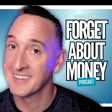
🏛️ 7 Stoic Money Lessons That Will Change How You See Wealth! 🤯
🔑 Discover How to Apply Stoic Teachings to Your Finances From practicing temporary poverty to preparing for misfortune, these lessons aren't just about saving money—they're about cultivating a life of virtue and contentment.
Watch and Subscribe on YouTube
In This Episode, We Discuss:
1️⃣ Money is Indifferent: Why your character matters more than your wealth.
2️⃣ Live Simply: How eliminating unnecessary desires creates a richer life.
3️⃣ Count Your Blessings: Gratitude as a tool for financial clarity.
4️⃣ Practice Temporary Poverty: Build resilience by embracing discomfort.
5️⃣ Prepare for Misfortune: The power of negative visualization in money management.
6️⃣ Choose a Sage: Mentorship and role models for wise financial decisions.
7️⃣ Invest in Yourself: Why personal growth is the best investment you can make.
Key Stoic Quotes from the Episode:
🧘 "True wealth is found in character, not currency." – Jonas Salzgeber
⚖️ "Focus on what’s within your control and accept the rest." – Core Stoic Teaching
💡 "Live simply to live well." – Ancient Stoic Philosophy
🌱 "Gratitude turns what we have into enough." – Jonas Salzgeber
🛡️ "Prepare for challenges in times of peace." – Jonas Salzgeber
🔗 Jonas Salzgeber’s Links:
📘 The Little Book of Stoicism: Timeless Wisdom to Gain Resilience, Confidence, and Calmness
🧘♂️ Mastering Flow: Perform Better, Experience More Joy, and Live a Happier Life
🔗 David’s Links:
✍️ Stoicism: The Philosophy of Financial Independence
🍏 Forget About Money on Apple Podcasts
🎧 Forget About Money on Spotify
#gratitude #personalfinance #moneylessons #stoicism
🎧 Listen & Subscribe:
Join us for more episodes exploring Stoic philosophy, financial independence, and cultivating a mindful approach to money and life. Hit subscribe and tap the bell 🔔 to stay updated!
📜 Disclaimer: This podcast is for entertainment and informational purposes only and is not financial advice. Always consult a qualified financial advisor before making major financial decisions.

